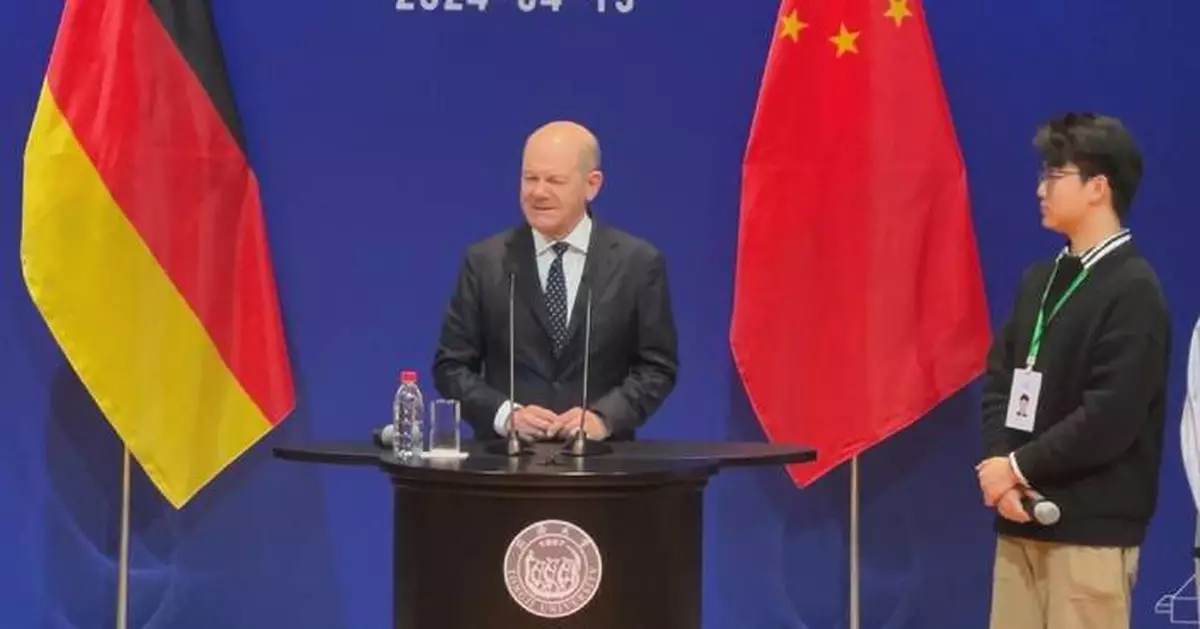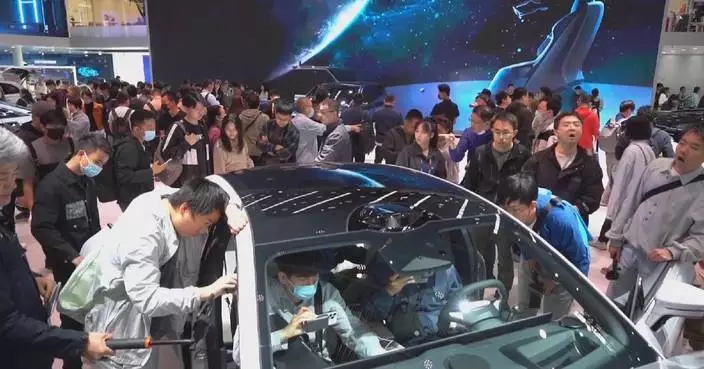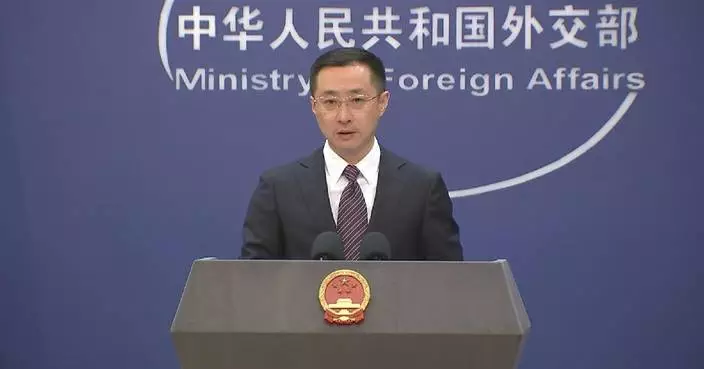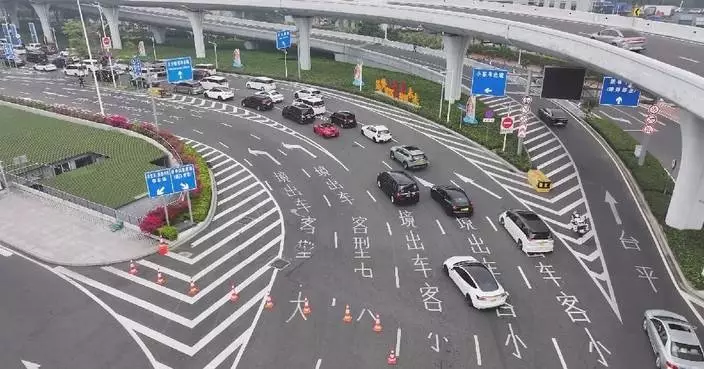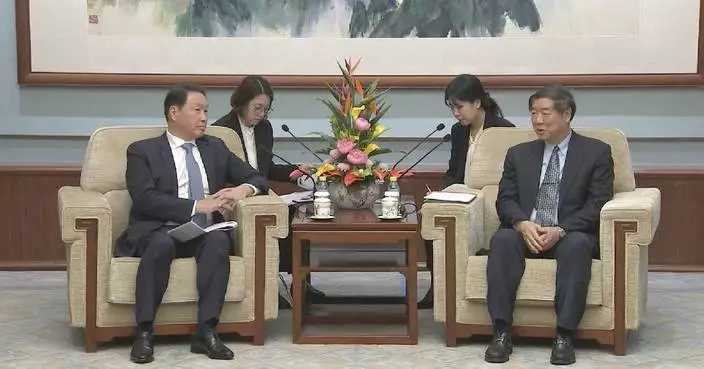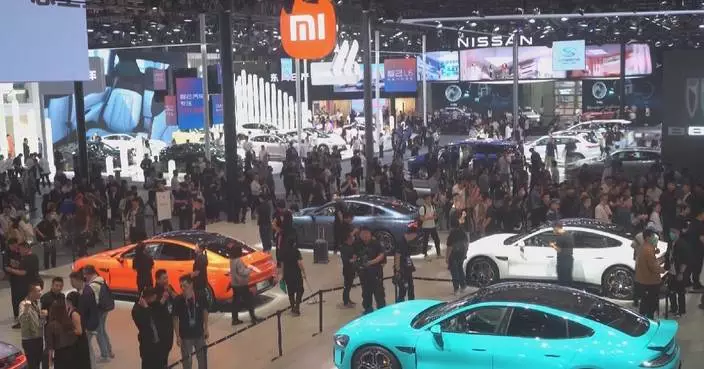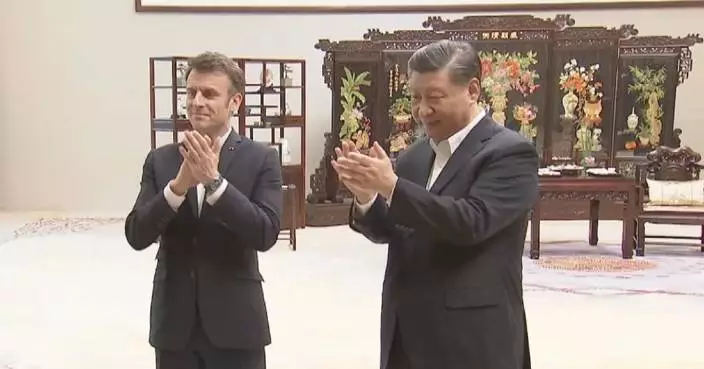German Chancellor Olaf Scholz arrived Monday in Shanghai -- the second leg of his current China visit, where he and his delegation visited Tongji University and a German polymer producing company based in the megacity.
Scholz gave a short speech at Tongji University and interacted with Chinese students.
Tongji University was founded by a German doctor in 1907 and is engaged in many education projects jointly with German universities.
Thereafter, Scholz went to German polymer maker Covestro in Shanghai's Pudong New Area. Polymer is used in chemicals, biology and material science.
The German leader is accompanied by a large delegation of representatives from well-known German firms. The heads of German auto-makers Mercedes-Benz, BMW, Volkswagen, technology firm Siemens, elevator maker Thyssen Krupp are part of the high-profile group.
Almost all of these conglomerates have their offices in Shanghai or operate factories in nearby cities.
"It's always a very nice occasion to come to Shanghai. There is a lot of business over here. Of course we have many businesses here. We've visited here already during this year. [I've visited] Shanghai a couple of times. It's a huge business area," said Miguel Angel Lopez Borrego, CEO of Thyssenkrupp.
"The number one is coming to China. We've been already working for a long, long time with our customers here in China. We have long-term relationships. The main message would be that technology is changing so fast, there is no company and no country in the world that can master all the technology, challenges alone," said Roland Busch, CEO of Siemens.
Shanghai is the second stop of Scholz's three-day official visit to China which started on Sunday. The German Chancellor visited southwest China's Chongqing Municipality before coming to Shanghai.
Scholz is expected to meet with officials in Shanghai before heading to Beijing in continuation of the China visit.
Scholz is on his second visit to China since taking office in 2021.
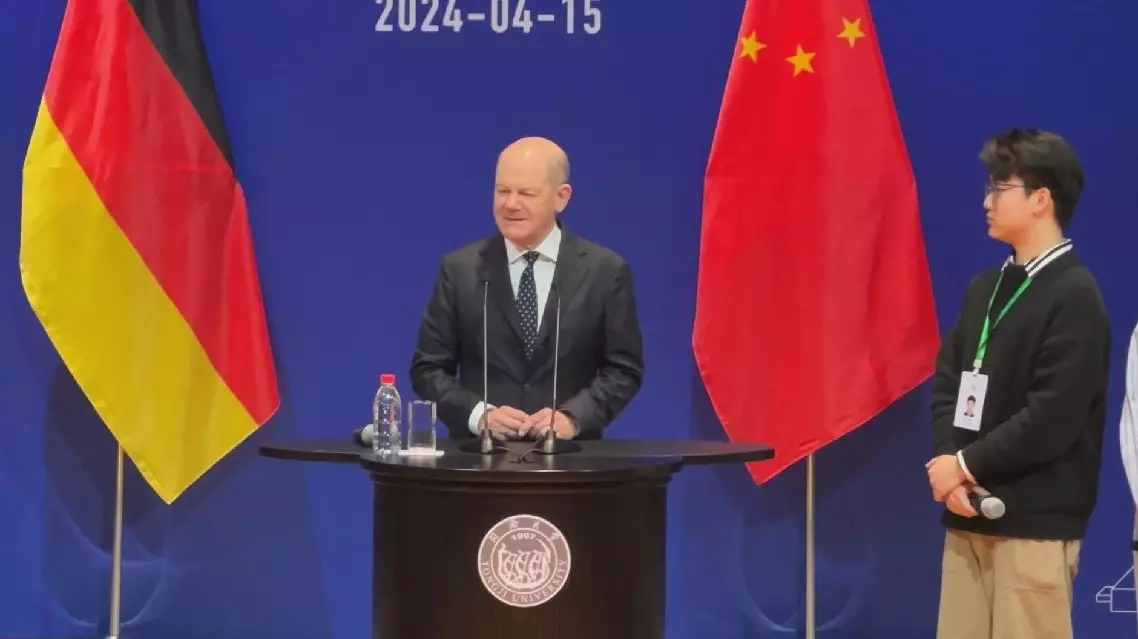
Scholz visits Tongji University, German company in Shanghai
The year 2024 celebrates the 60th anniversary of China-France diplomatic ties, and it also heralds the China-France Year of Cultural Tourism, a celebration aimed at bolstering cultural and people-to-people exchanges through a series of enriching events.
During a special episode focused on this milestone, cultural experts and influencers from both nations shared insights into the depth of Sino-French cultural interactions.
The discussion, livestreamed from Shanghai on April 22, began with a historical overview, notably when then-Chinese Premier Zhou Enlai introduced President Georges Pompidou to the Yungang Grottoes, a renowned Buddhist cave site in north China's Shanxi. These caves feature intricate carvings that reflect religious and cultural syntheses from the 5th and 6th centuries.
David Gosset, founder of the China-Europe-America Global Initiative, commented on the geopolitical context of the initial outreach.
"People have to remember that we were in the middle of the Cold War, therefore, the world was divided. For a Western country like France to reach out to China, and of course vice versa, it's a beautiful moment, historical diplomatic breakthroughs, means that despite all the geopolitical difficulties, a spirit of cooperation and friendship can prevail," said Gosset.
Xie Dingwei, executive director of the Bund One Art Museum, emphasized the importance of preserving cultural heritage.
"We need to preserve these cultural heritages. We not [just] preserve the sculptures or the buildings itself, but also, it gives us a chance to see hundreds of years ago, how our craftsmanship, our architecture, our human beings, we have reached [such] high levels, which brings us to the present time these treasures, these values. This is something we really cannot afford to lose. Culture is a common language; it doesn't matter you're Eastern art or Western art, somehow they can be connected. So this is something I think it creates a communication channel between the nations," said Xie.
The cultural connection was recently demonstrated during a meeting last April between French President Emmanuel Macron and Chinese President Xi Jinping, where they enjoyed the performance of "Flowing Water" played on the Guqin by a Chinese artist, symbolizing the flowing friendship between the two nations.
"This communication on art subjects between the nations and different peoples are really, really important. It goes beyond politics, beyond the differences between the nations. But you all go to getting closer to understanding each other," said Xie.
Gosset also supported the notion of fostering unity through cultural platforms, aligning with President Xi Jinping's idea of building a community with a shared future.
"I am completely aligned with this idea. We are on the same boat. Our world is frightened by too many divisions. And I think, what is important is to support the forces that can unite us, so it can be music, and certainly museums, and you need leaders with a vision that does not separate us," said Gosset.

Six decades of China-France diplomatic relations highlighted by cultural exchange



